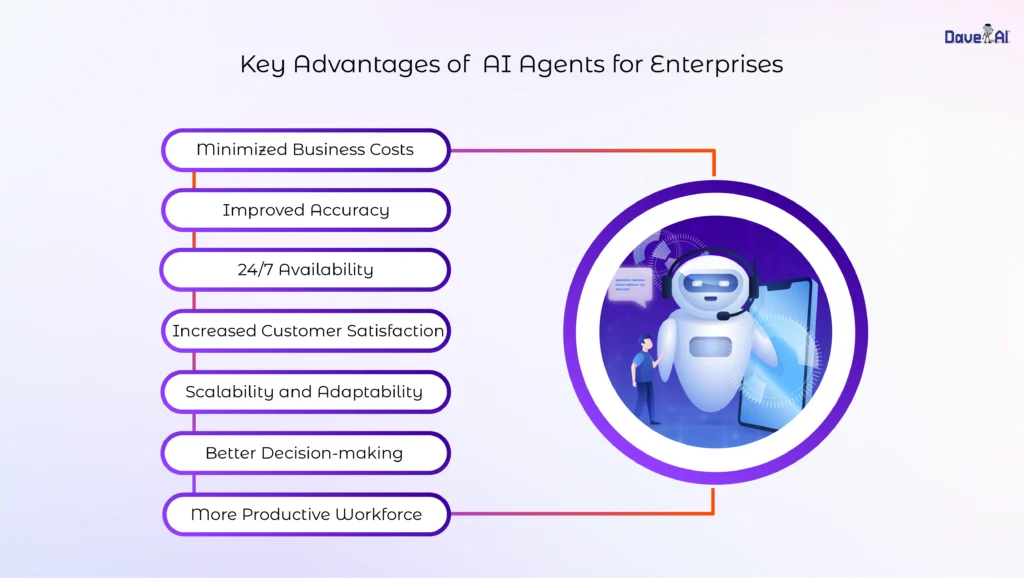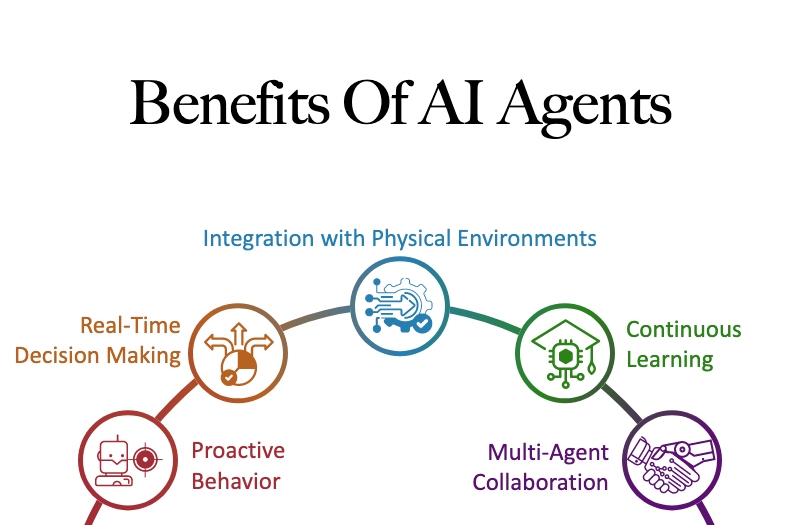Unlocking the Full Possible of the AI Agents Marketplace: What You Required to Know
The AI agents marketplace presents considerable opportunities for services aiming to enhance performance and automation. Steering through this landscape needs a strategic approach. Firms should assess their certain demands and determine appropriate AI solutions. As organizations commence this trip, they face important choices that can form their future. What variables should they focus on to assure effective combination and make the most of advantages? Understanding these components is vital for making educated options.
Recognizing the AI Agents Marketplace Landscape
As the demand for AI solutions proceeds to grow, the landscape of the AI agents marketplace has developed right into a vibrant community. This marketplace encompasses a diverse series of services and products created to improve automation and efficiency throughout numerous industries. Principal consist of developed technology companies, start-ups, and open-source areas, each adding distinct advancements and performances.
The competitive nature of this environment cultivates fast developments, causing a range of AI agents tailored to specific jobs, from customer support chatbots to complicated decision-making systems. As companies increasingly identify the value of AI, they look for solutions that offer scalability and integration with existing technologies.
Regulative factors to consider and honest ramifications better shape the marketplace, compelling designers to focus on openness and liability. In general, the AI agents marketplace proceeds to broaden, driven by technical development and an expanding understanding of the transformative capacity of expert system.
Key Applications of AI Agents Across Industries
AI agents are transforming numerous markets by automating jobs that enhance operational performance and decision-making. In the healthcare field, AI agents assist in diagnostics and individual management, enhancing procedures and improving end results. In finance, they examine market fads and help with trading, making it possible for quicker and extra informed financial investment choices. Retail markets make use of AI agents for supply management and customized consumer experiences, optimizing sales techniques and stock turn over.
Manufacturing also benefits, with AI agents checking equipment and anticipating maintenance requires to minimize downtime. In advertising, they assess consumer behavior and automate targeted campaigns, raising engagement and conversion rates. AI agents play an essential role in logistics, optimizing supply chains and reducing prices through wise directing and need projecting. As organizations across these industries take on AI agents, they expose new levels of efficiency and development, positioning themselves for future growth and competitive advantage.
Determining the Right AI Agents for Your Organization Requirements
How can companies figure out which AI agents align ideal with their details demands? To make enlightened decisions, organizations ought to begin by reviewing their functional goals and identifying the specific obstacles they deal with. This involves defining the essential features that AI agents will certainly sustain, such as client solution, information analysis, or process automation.
Once the requirements are clear, firms can discover the marketplace for AI agents customized to those functions. They should take into consideration variables such as the representative's abilities, integration convenience with existing systems, and versatility to different operations. In addition, evaluating study or endorsements from comparable industries can give understandings into effective applications.
Ultimately, consulting with technological experts or performing pilot examinations can further improve options, ensuring that the picked AI agents not only fulfill instant functional requirements yet likewise straighten with long-lasting tactical objectives. This systematic technique enhances the probability of selecting one of the most reliable AI solutions.
Examining AI Agents: Metrics and Efficiency Indicators
Reviewing the performance of AI agents calls for a clear collection of metrics and efficiency indicators customized to the particular objectives of the organization (AI Agents Marketplace). Secret metrics typically consist of accuracy, which determines the representative's capacity to give appropriate outcomes, and reaction time, mirroring the rate at which the agent processes demands. In addition, user contentment scores provide understandings right into how well the agent fulfills user expectations
Engagement metrics, such as frequency of use and retention rates, can suggest the representative's efficiency in preserving individual rate of interest. Cost-effectiveness is one more necessary efficiency indicator, figuring out whether the advantages got from the AI representative validate its functional prices.
Lastly, adaptability and knowing rates are substantial, as they gauge the agent's ability to improve over time. With each other, these metrics give a comprehensive framework for assessing AI agents, allowing organizations to make educated choices concerning their integration and optimization.

Finest Practices for Incorporating AI Agents Into Your Procedures
Effective integration of AI agents into operations demands a strategic approach that straightens with the company's goals. First, organizations should assess their specific demands and determine the areas where AI can add one of the most worth. This calls for a thorough evaluation of existing process and processes to determine inadequacies.
Next, it is vital to pick the ideal AI agents tailored to these demands, ensuring compatibility with existing systems. Educating staff members to function together with AI agents enhances acceptance and cultivates a joint atmosphere.
Furthermore, organizations must develop clear interaction channels to promote responses and modifications, guaranteeing continuous renovation of AI capabilities.
Lastly, keeping an eye on performance metrics post-implementation enables recurring analysis, helping companies adjust and maximize their AI methods with time. By adhering to these finest techniques, organizations can effectively utilize AI agents to enhance productivity and attain their calculated goals.
Browsing Honest Considerations in AI Adoption
What ethical dilemmas arise when organizations adopt AI innovations? The implementation of AI agents offers different challenges, especially pertaining to accountability, openness, and justness. Organizations needs to come to grips with guaranteeing that their AI systems do not continue biases, as formulas trained on historical data can reinforce existing inequalities. In addition, the opacity of some AI decision-making processes can result in an absence of accountability, making it difficult to recognize obligation in case of errors or negative end results.
Privacy problems likewise emerge, as AI systems frequently call for considerable data collection, increasing concerns concerning authorization and data protection. The possible variation of tasks due to automation presents ethical considerations surrounding workforce effect and economic inequality. Organizations has to navigate these intricacies carefully, cultivating an ethical structure that focuses on human civil liberties and societal welfare while taking full advantage of the advantages of AI innovations. By dealing with these moral factors to consider, organizations can assure liable AI adoption.
Future Patterns: What to Anticipate in the AI Agents Marketplace
The AI agents marketplace is positioned for substantial advancement, noted by increased automation abilities that improve jobs across different sectors. Alongside this, enhanced customization attributes are anticipated to tailor individual experiences better, providing to private preferences and requirements. These trends suggest a future where AI agents become vital tools i was reading this for both businesses and customers.
Raised Automation Capabilities
Arising patterns in the AI agents marketplace signal a substantial leap in automation abilities, improving sectors and workflows. As AI agents end up being a lot more innovative, they are significantly able to take care of complex jobs with marginal human intervention. This evolution allows companies to streamline operations, decrease expenses, and enhance performance. Markets such as logistics and production are leveraging AI agents to automate supply administration and predictive maintenance, leading to optimized performance. Furthermore, the integration of device learning algorithms encourages these agents to pick up from previous information, enhancing their performance over time. As automation ends up being a lot more prevalent, businesses can expect transformative modifications in just how they operate, leading the way for innovative solutions and brand-new affordable benefits this article in the marketplace.

Improved Customization Functions
Just how will improved personalization attributes improve individual experiences in the AI agents marketplace? These advancements are set to reinvent just how individuals interact with AI agents, tailoring solutions to specific choices and requirements. By examining user data and actions, AI agents will use referrals and options that resonate even more deeply with each user. This change in the direction of hyper-personalization will not just enhance user satisfaction but likewise foster greater commitment to particular systems. In enhancement, the integration of comments systems will allow AI agents to adapt in real-time, ensuring that the user experience constantly advances. As these features become basic, the marketplace will likely see raised involvement and retention, driving development and competitors among AI programmers to offer the most customized experiences possible.
Frequently Asked Questions

How Do I Pick the Right AI Representative Supplier?
Selecting the appropriate AI agent vendor involves reviewing their competence, reliability, and client responses. Analyzing the innovation's compatibility with existing systems and recognizing pricing models are crucial action in making an informed decision.
What Are the Expenses Related To Deploying AI Agents?
The expenses connected with releasing AI agents include licensing costs, infrastructure expenses, maintenance, training, and possible assimilation costs. Organizations has to examine these factors to properly allocate implementation and assure an effective deployment approach.
Can AI Agents Be Customized for Particular Service Demands?
AI agents can certainly be personalized to meet details business requirements, allowing organizations to tailor performances and performance - AI Agents Marketplace. This flexibility boosts functional effectiveness, addresses special difficulties, and promotes technology in numerous markets and sectors
How Do I Ensure Data Personal Privacy With AI Agents?
To guarantee data personal privacy with AI agents, organizations must execute robust encryption, develop clear data taking care of policies, conduct normal go to website audits, and utilize anonymization strategies to shield sensitive info during handling and storage space.
What Support Choices Are Offered After AI Agent Execution?
After implementing AI agents, companies commonly have access to numerous assistance alternatives, including technological assistance, user training, and routine updates. These sources guarantee smooth procedure and aid address any obstacles that may occur post-implementation.